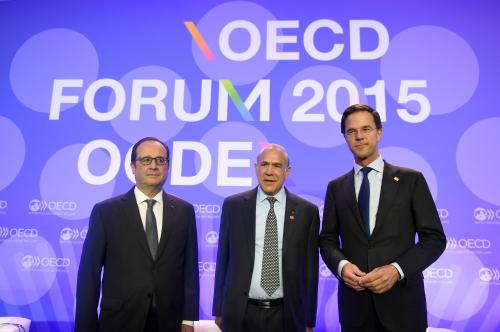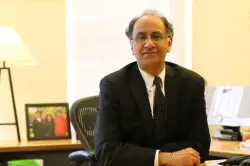It is a world gone topsy-turvy.
Today, using growth forecasts from the International Monetary Fund, Stephen Roach at MarketWatch argues that the world has turned “inside out.” Between 1980 and 2007, he writes, the share of advanced economies in world GDP (at purchasing power parity) was 59 percent; that of developing countries and emerging economies was 41 percent. By 2016, the shares had flipped.
Even people much younger than me will remember when big shots in Washington, London, and Brussels lectured leaders in Mexico City, Beijing, and New Delhi about the benefits of free trade and foreign investment. In 1989, when John Williamson put together a list of things that people in Washington thought were necessary for Latin America, freer trade and foreign direct investment were prominent among them.
The prescriptions were resisted, and the term “Washington Consensus” became an expletive. But even as they cursed the teachers, the students learned the lessons.
Early signs of the success of emerging economies were noted in 2001 in the IMF’s Global Trade Liberalization and the Developing Countries briefing. A big part of the equation was the innovation that came from competition brought about by trade and foreign investors. The Economist noted in 2010 that “countries that were until recently associated with cheap hands {are} becoming leaders in innovation.”
Five years ago, when the European Union—the U.K. was still a full-fledged member—put out a convincing list of the benefits of freer trade and foreign direct investment (FDI) for developing countries, it was preaching to the converted.
Today, people in Mexico City are trying to persuade their counterparts in Washington that trade and FDI are good for everyone. The early signs are not promising. “The disdain with which all of these positive trends have been met by Trump and his supporters leaves many Mexicans feeling, as former Foreign Minister Jorge Castañeda told The New York Times…: ‘Like we are Charlie Brown and they are Lucy with the football.’”
Meanwhile, the European Commission should consider compiling a list of the benefits of trade for advanced economies. If it hurries, it might get the message across the channel in time.
The Brookings Institution is committed to quality, independence, and impact.
We are supported by a diverse array of funders. In line with our values and policies, each Brookings publication represents the sole views of its author(s).







Commentary
Future Development Reads: Inside out, upside down: The students have become the teachers
April 28, 2017